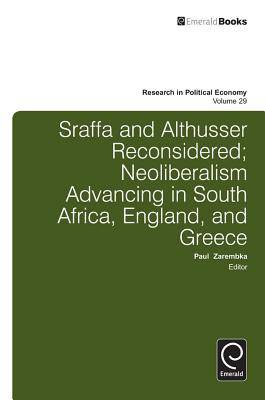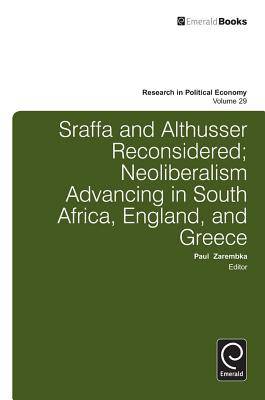
- Afhalen na 1 uur in een winkel met voorraad
- Gratis thuislevering in België vanaf € 30
- Ruim aanbod met 7 miljoen producten
- Afhalen na 1 uur in een winkel met voorraad
- Gratis thuislevering in België vanaf € 30
- Ruim aanbod met 7 miljoen producten
Zoeken
Sraffa and Althusser Reconsidered
Neoliberalism Advancing in South Africa, England, and Greece
€ 149,45
+ 298 punten
Omschrijving
This volume examines the recent advance of neoliberalism. The volume begins with a very extensive study of the archives of Piero Sraffa, which suggests the importance of Marx's influence on his work. The following chapters address the recent multifaceted advance of neoliberalism, with a focus on three current instances. Firstly, suggesting uneven development as in Rosa Luxemburg. South African multi-billion dollar investments in two fossil-fuel projects have recently cemented debtor relations to the World Bank and the Chinese Development Bank, while generating activist opposition in this era of climate crisis. A second instance focuses on secondary school teachers in England whose work load is not only increasing but also increasingly commodified and judged, a development that represents the penetration of abstract labor and alienation, as in Marx. The third example examines the credit bubbles in Greece, noting them as an example of the progency of fictitious capital. The remaining chapters include a critique of Althusser's interpretation of the Marxist philosophy of science, and a continued discussion regarding the concept of a labor aristocracy, engaging the work of Zak Cope.
Specificaties
Betrokkenen
- Uitgeverij:
Inhoud
- Aantal bladzijden:
- 280
- Taal:
- Engels
- Reeks:
- Reeksnummer:
- nr. 29
Eigenschappen
- Productcode (EAN):
- 9781784410070
- Verschijningsdatum:
- 31/10/2014
- Uitvoering:
- Hardcover
- Formaat:
- Genaaid
- Afmetingen:
- 152 mm x 229 mm
- Gewicht:
- 566 g

Alleen bij Standaard Boekhandel
+ 298 punten op je klantenkaart van Standaard Boekhandel
Beoordelingen
We publiceren alleen reviews die voldoen aan de voorwaarden voor reviews. Bekijk onze voorwaarden voor reviews.










